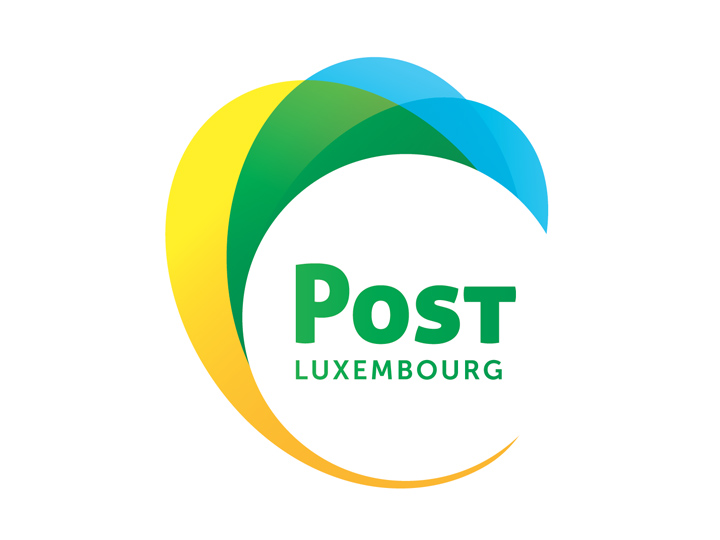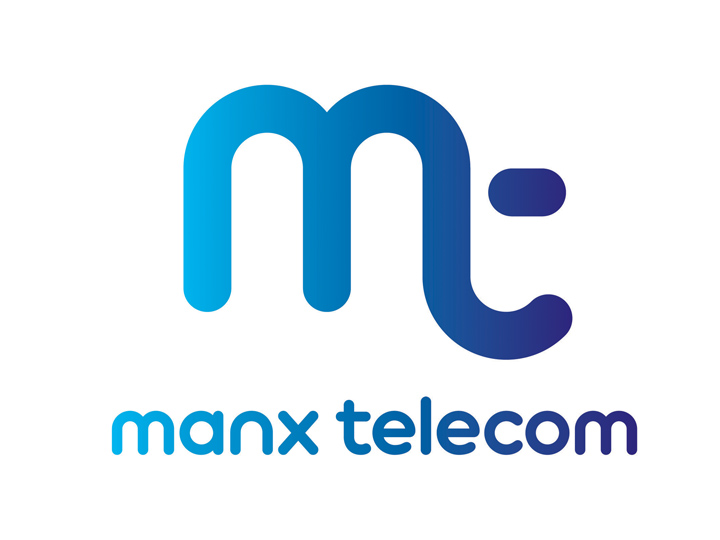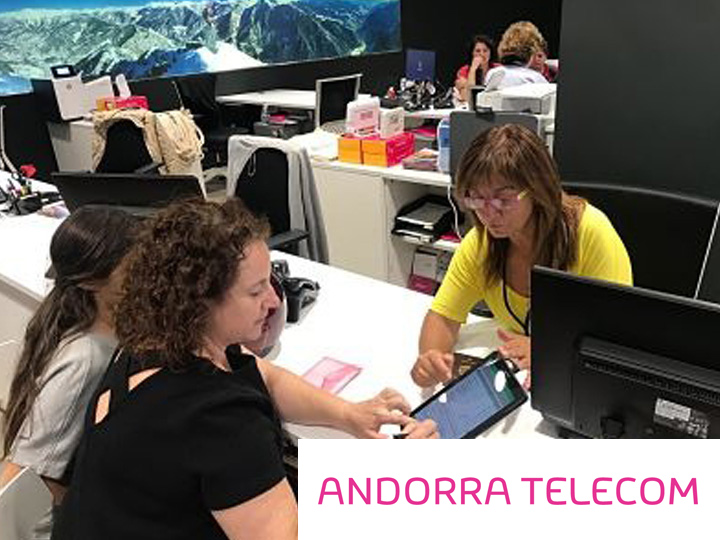The 5G technology deployment strategy is part of Luxembourg’s digitisation programme. After focusing its efforts on the 4G fixed and mobile Internet network, Luxembourg’s current aim is to be a leading digital player with 5G. The reasons are two-fold. On the one hand, the country must respond to the targets adopted by the EU Telecom Ministers. On the other hand, we respond to a growing need for speed due to new uses: 4K is becoming more widespread, streaming is becoming a norm and the number of eGamers is rising. All of these habits call for a higher network capacity and low latency. But 5G is so much more! For Luxembourg, this new stage of digitisation represents a major socio-economic step forward for both individuals and businesses. Citizen’s quality of life will be improved with developments in many areas: transport, industry, security, health, the Internet of Things, etc. And the deployment of 5G will also increase the attractiveness of Luxembourg by affirming that it is a ground for innovation for setting up new businesses. To sum up, in Luxembourg, 5G will be the electronic communication infrastructure of the future.
Manx Telecom on schedule to bring fibre to more than 20% of Island homes and businesses
Fibre broadband is widely acknowledged as being essential for the future success of all leading economies. There is strong evidence – including research commissioned by the UK telecoms regulator Ofcom – which shows a strong, positive, relationship between broadband speed and economic growth. In the next few years fibre enabled countries are likely to see the fastest growth in GDP, and they will have a competitive edge when it comes to attracting new businesses. Manx Telecom began investing in fibre in early 2018 to keep the Island ahead of the curve. By the end of 2019 more than 20% of Isle of Man homes and businesses will have access to FTTP (Fibre To The Premises) services. That means coverage here is approximately two and a half times better than in the UK where (according to the most recent Ofcom statistics) only eight per cent of homes and business have access to fibre.
In this interview Sutha Siva, Manx Telecom’s Chief Operating Officer, explains how the Isle of Man’s premier communications company is leading the drive to keep the Island in the technology fast lane.
Why is fibre availability so important to the Isle of Man’s future as an international business centre?
Fibre is now the standard that’s expected by businesses in all leading economies because providing a fibre optic cable right into the premises creates a superior broadband infrastructure that won’t be surpassed by other technologies in the foreseeable future. Businesses in the vast majority of sectors of the Isle of Man’s economy want fibre, and when we talk to international businesses that are considering setting up here, fibre availability is often at the top of the list of priorities. Without fibre, the Isle of Man would be at a serious disadvantage compared to rival jurisdictions. Manx Telecom has always been committed to investing in infrastructure to ensure that businesses have access to technology which gives them a competitive advantage. For many years the Isle of Man has been ahead of the UK in terms of average broadband speeds, but we knew long ago that fibre was essential – that’s why we began our roll-out nearly two years ago in early 2018. We’re proud to announce that by the end of 2019 more than 20% of the Island’s premises will have access to fibre.
What advantages will fibre deliver to businesses here on the Island?
Businesses that become early adopters can gain many advantages. That can be from improving efficiency because fibre speeds up all online tasks, or by providing better customer experience – for example, hotels and other businesses in the visitor sector improving broadband experience for guests. Or, it can be by seizing ‘Internet of Things’ (IoT) opportunities which fibre creates to bring new products and services to market. Fibre represents the dawn of a new era within which technological innovation can be paired with business innovation. We’re ready for the future and we’re determined that businesses in the Isle
of Man will be too. In the longer term fibre will also pave the way for 5G, the next generation of mobile technology which has the potential to create even more opportunities, especially for IoT applications.
Finally, is the roll-out of FTTP just a matter of installing more fibre cables?
No, far from it. Installing fibre cables is not an easy task in itself because it requires complex, time-consuming tasks to be carried out by experienced teams of technicians and engineers with highly-specialised skills. It requires a combination of arduous tasks such as laying cables in already congested underground ducts or drilling channels for new ducts, and technical precision with tasks such as splicing fibre optic cables. Our technicians and engineers are supported by colleagues who map out and plan the fibre roll-out to make it as efficient as possible – not an easy task when you consider that there are more than 40,000 homes and businesses on the Island in urban and isolated rural locations. Our fibre project touches all aspects of our business, but it’s led by a specialist team who spent two years acquiring the knowledge and skills required to do this work. That process is ongoing as we continue to invest in the training necessary to further improve the abilities of each team member. Our fibre specialists are among 300 Manx Telecom employees who are by far the biggest, most experienced, and highly skilled team of communications technology professionals on the Island. No other business can match our skills and experience in fibre technology – and that’s proven by the fact we have already demonstrated our ability to deliver fibre to nearly a quarter of the Island’s homes and businesses.
The digital transformation of Andorra Telecom will make it possible to eliminate paper consumption
The introduction of electronic documents and the implementation of the biometric signature allow us to save 70 per cent in one year
Andorra Telecom is committed to the process of becoming paper free. The company has set the end of 2020 as the deadline to fully operate with digital documents both internally and with customers. If the first step was to stop sending invoices to customers’ homes in 2018, in 2019, many internal procedures have been digitised and the biometric signature began to be applied within the commercial agency just a few days ago.
The results can already be seen. From the 540,000 sheets of paper consumed in 2018, just 162,000 sheets were expected to have been consumed by the end of 2019, which represents a 70% reduction in one year. Translated into environmental impact, this represents a saving of 95 trees and 190 million litres of water.
Andorra Telecom spokesman, Carlos Casadevall, explained this, telling the media how, thanks to the biometric signature and digital documentation management, users can now leave the agency with no paperwork. “All documentation is sent to them via email. If a customer so requests, they can be sent the corresponding printed copy but, as evidenced by the implementation of electronic invoicing, the majority of customers have no problem in completely eliminating paper copies”, he stated.
Greater efficiency and security
Users will have fast access to information about the products they have contracted through the customer area of the website and the Andorra Telecom application. The electronic document management model not only seeks to reduce environmental impact but also leads to improved efficiency and guarantees information security.
The paper elimination plan is part of the ambitious digital transformation programme that is being developed this year. Among the measures that are being implemented is the generation of a new user experience through digital channels in order to ensure that almost all interactions with customers can be made through the app and the website; the introduction of artificial intelligence, the use of data to offer more personalised services and a better customer experience, the automation or robotization of many internal tasks, the implementation of a digital platform to train workers, favouring innovation, the implementation of flexible work methodologies, etc.
Andorra Telecom will begin to roll-out 5G next summer
Jordi Nadal reports on the company’s pilot trial at the opening ceremony of Company Conference Day, dedicated to the digital transformation of commerce
During the Company Conference, the Director of Andorra Telecom, Jordi Nadal, announced that the roll-out of the 5G telephone network will commence next summer with a pilot trial in the urban area made up of Andorra la Vella and Escaldes-Engordany. Nadal, who was tasked with opening the event with a talk on the latest trends in telecommunications, highlighted the advantages of this new technology, which will allow browsing speeds of 1,000 Mbps, a very high concentration of devices operating in the same area and very low latency.
During the conference, the telephone operator’s director explained that during the initial phase the same 4G hub will be used, adapted to allow the connection of new 5G aerials and mobile devices enabled to operate in it, before transferring to a 5G hub in a second phase.
From an infrastructure perspective, the General Manager of Andorra Telecom also referred to the Internet of Things (IoT) network, explaining that coverage for the Lora network was now available in all districts. This network allows monitoring with sensors that transmit very little information, which operate from remote locations and with a long-life battery. Nadal reported that Andorra Telecom will begin marketing services on this network shortly. Among its uses, he explicitly referred to measuring the levels of liquids in tanks or temperature alarms in remote locations.
In recent years Andorra Telecom has displayed a strong commitment to the automation of processes. Nadal believes that personnel can be relieved of repetitive tasks at an affordable cost. “Automated processes not only offer high availability, but reduce errors and are scalable. In addition, they can be implemented without changing the company’s IT systems”, he declared, urging companies to discover the use cases developed by Andorra Telecom.
The talk covered other technologies such as blockchain, big data and artificial intelligence.
The speaker Marc Vidal, a specialist in Digital Economy, gave the main speech of the conference, one that was highly inspiring in its tone. His talk “The digital challenge in the small business” focused on highlighting the key role of people in the technological revolution. He insisted that adapting to new technologies is not an option, and that all sectors, and particularly the retail sector, need “to take part in this revolution”.
Vidal presented cutting-edge applications in the field of Artificial Intelligence, big data and automation, while emphasising “the opportunities offered by all these innovations”. The capacity of the country’s main economic driving forces, such as tourism and commerce, to implement digital transformation will determine Andorra’s future model.
The Company Conference concluded with a round table on the future of the commercial sector, in the presence of the President of Shopping Mile, Sònia Yebra, the representative from Sogar, Marc Soliva, and Pyrénées Andorra’s CRM analyst, Marta Ballús.
The Company Conference, an annual event organised by Andorra Telecom, was attended by approximately 180 professionals and entrepreneurs.
New mobile network audacious launches, personalising calls to suit your hearing
Audacious, the first of its kind mobile phone network, is launching today in the UK. The network provides a solution for users with a range of hearing needs, using a world-first technology created in partnership with audiologists to personalise calls to the user’s unique hearing profile.
While Audacious was designed with hearing loss in mind, it also has the potential to help those who struggle with sound quality on their mobile and find phone calls stressful. The network launches as new research from Audacious reveals that nearly 70% of Brits revealed they have struggled to be heard or hear clearly on phone callsi. These unclear calls leave Brits frustrated (18%) and stressed (17%), with figures rising to 90% and 70% respectively for those with hearing lossi.
Nearly a quarter (23%) of the UK report avoid answering the phone altogether due to concerns of not hearing the person on the other endi. This has led to nearly a fifth of Brits (17%) experiencing feelings of isolation as a resulti. To help put an end to this ‘phone fear’ Audacious provides users with an optimised audio experience tailored to each individual’s hearing. The result, clearer calls, which nine in 10 people with hearing loss experienced during trials.
From today, anyone can visit the Audacious website and take a quick, commitment free sound check to receive their own personal hearing profile. Customers can then order a SIM card tailored to the individual way they hear. There is no need for users to upgrade or replace their handset, instead they simply swap their existing SIM card with a new Audacious one. The Audacious hearing test is free for anyone who may be interested to see whether they could also benefit from the clearer service regardless of whether they have a diagnosed hearing problem.
Audacious works exactly how your current mobile service does, with minutes and data but makes your calls clearer too. Contracts will be rolling on a flexible 30 day basis, which allow users the freedom to leave at any time. Prices will range from £14 per month for 2GB of data to £24 a month for 10GB of data and all tariffs will come with unlimited texts and minutes.
Audacious was founded by Matthew Turner, who has had moderate to severe hearing loss his whole life. Matthew set up the network in response to the lack of support provided to him and many others by the telecoms networks.
Audacious Founder, Matthew Turner said: “Having lived with moderate to severe hearing loss since birth, I am fully aware of the emotional impact millions of people are experiencing as they struggle daily to communicate using the mobile phone. It was a real struggle to talk on the phone and it had a negative impact on both my personal and professional life. As no mobile operator was offering or appeared to be working towards a solution to this global challenge, I made it my personal mission to develop the technology that could tailor phone calls to individual hearing loss or needs and so empower people across the UK to have better, clearer conversations.”
Hearing Researcher, University of Cambridge, Professor Brian Moore said: “When developing the Sound Check for Audacious, we sought to solve some of the issues that crippled earlier hearing aid technology. Through its treatment of frequencies to improve the quality of speech on calls, Audacious is a genuinely new product. The sound processing behind the Sound Check shows just how far hearing research has come.”
Further Spokespeople Quotes:
Former England Rugby player Ben Cohen MBE who experiences hearing loss said: “I’ve never let my hearing loss hold me back, whether playing sport at an international level or learning to ballroom dance. The one thing I find hard though is missing out on interactions with loved ones. I travel a lot and while text or email are great you can’t beat hearing the sound of someone’s voice. Audacious is a game changer as it means I can hear about my children’s day wherever I am”
Audacious CEO, Rob Shardlow said: “The beauty of Audacious is in its simplicity, you don’t need to change your mobile phone or add any accessories, simply do the quick, free online soundcheck to find out how you hear, receive your personalised hearing profile and then order your customised Audacious SIM card that works for how YOU hear.”
Opinium survey of 2,007 British adults conducted by Opinium in July 2019




